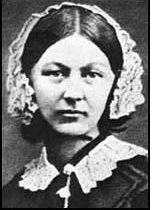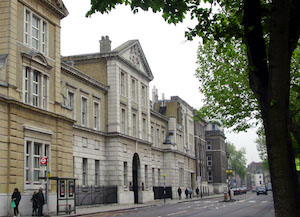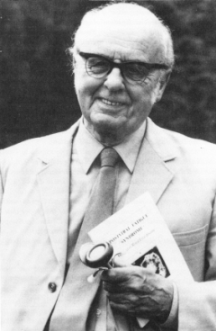Portal:History and People/Selected article
- These are selected articles related to History and People which appear on Portal:History and People.

Florence Nightingale (1820 - 1910) was a British nurse who is considered the founder of modern nursing. She was affectionately called "The Lady with a Lamp" referring to how she carried an oil lamp during hospital night rounds. While stationed in Crimea, Nightingale developed "Crimean fever" (a bacteria infection now known as brucellosis) and never recovered. Although Myalgic Encephalomyelitis (ME) and chronic fatigue syndrome (CFS) were not defined in her lifetime, many current physicians and medical historians believe she developed ME/CFS as a result of a chronic brucellosis infection. Despite being bedbound, Nightingale continued to work until her death on advancing the nursing profession and lobbying for regulatory changes to hospitals.(more...)
In 1984, there was an outbreak of myalgic encephalomyelitis/chronic fatigue syndrome (ME/CFS) (then thought to be Chronic Epstein-Barr virus) at Incline Village, Nevada, United States. An estimated 160 residents of Incline Village became ill in the winter of 1985. Chronic fatigue syndrome (CFS) was the name coined by the Centers for Disease Control (CDC) in response to an outbreak of "chronic flu-like illness" at Incline Village. (more...)

The 1934 Los Angeles atypical polio outbreak is the first recorded outbreak of myalgic encephalomyelitis. 134 nurses, doctors and staff became ill with a disease resembling polio but that resulted in muscle fatiguability rather than permanent paralysis. (more...)

Doctor A. Melvin Ramsay was consultant physician in Infectious Diseases at the Royal Free Hospital in London, United Kingdom, where an outbreak of myalgic encephalomyelitis/chronic fatigue syndrome (ME/CFS) occurred in 1955. (more...)

